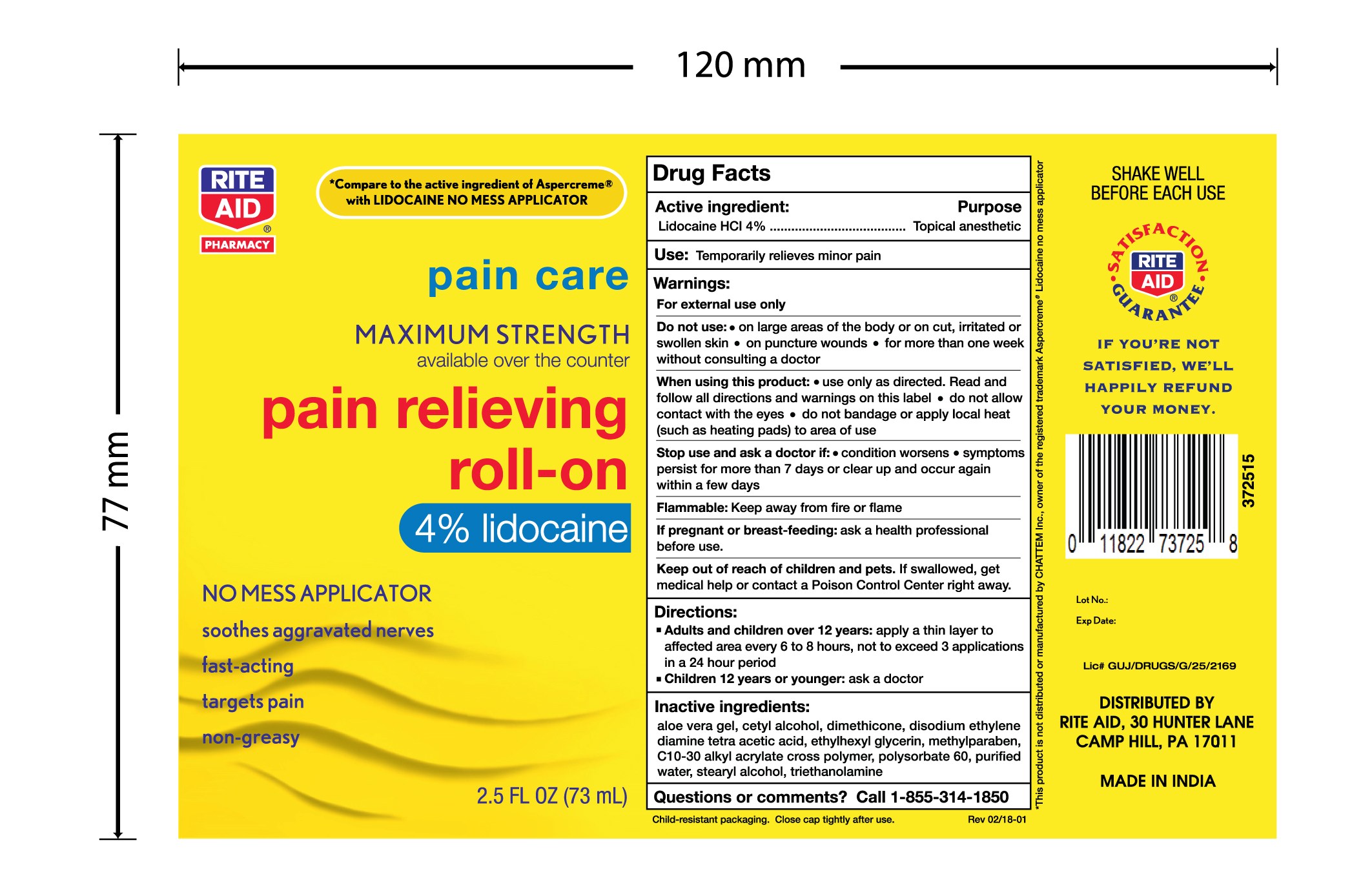Rite Aid Lidocaine Roll On | Lidocaine Hydrochloride Liquid while Breastfeeding

What is Rite Aid Lidocaine Roll On | Lidocaine Hydrochloride Liquid used for?
Brief: Topical anesthetic
Can I continue breastfeeding if I am using Rite Aid Lidocaine Roll On | Lidocaine Hydrochloride Liquid? How long does it stays in breast milk?

Rite Aid Lidocaine Roll On | Lidocaine Hydrochloride Liquid Breastfeeding Analsys
Lidocaine hydrochloride anhydrous while Breastfeeding
SafeCAS Number: 137-58-6
Compatible with breastfeeding no matter the multiple ways it can be used: anesthetic, anti-arrhythmic, or anti-epileptic drug. Excreted into breast milk in non-significant amount with no side effects on breastfed infants from treated mothers. As a topical anesthetic (dermatologic, dental-stomatologic, ophtalmotologic and otologic preparations) it has an almost nil systemic absorption. Avoid using it on the nipple, but if necessary do it after the breast feed, wipe it out and rinse with water before the next feed, An euptectic mixture with added Prilocaine (EMLA) is used for dermatologic anesthesia. There is an increased risk of Methemoglobinemia when applied on large surfaces or taken by mouth. Intrapartum anesthesia may delay the onset of phase II of Lactogenesis or milk coming-in. The American Academy of Pediatrics rates it usually compatible with Breastfeeding.
Rite Aid Lidocaine Roll On | Lidocaine Hydrochloride Liquid Breastfeeding Analsys - 2
Lidocaine hydrochloride anhydrous while Breastfeeding
CAS Number: 137-58-6
Lidocaine concentrations in milk during continuous IV infusion, epidural administration and in high doses as a local anesthetic are low and the lidocaine is poorly absorbed by the infant. Lidocaine is not expected to cause any adverse effects in breastfed infants. No special precautions are required.[1][2][3] Lidocaine labor and delivery with other anesthetics and analgesics has been reported by some to interfere with breastfeeding. However, this assessment is controversial and complex because of the many different combinations of drugs, dosages and patient populations studied as well as the variety of techniques used and deficient design of many of the studies. Overall it appears that with good breastfeeding support epidural lidocaine with or without fentanyl or one of its derivatives has little or no adverse effect on breastfeeding success.[4][5][6][7][8] Labor pain medication may delay the onset of lactation.
I am nursing mother and I have already used Rite Aid Lidocaine Roll On | Lidocaine Hydrochloride Liquid, what should I do?
As usage of Rite Aid Lidocaine Roll On | Lidocaine Hydrochloride Liquid is mostly safe while breastfeeding hence there should not be any concern. In case of any change in behavior or health of your baby you should inform your health care provider about usage of Rite Aid Lidocaine Roll On | Lidocaine Hydrochloride Liquid else no further action is required.
My health care provider has asked me to use Rite Aid Lidocaine Roll On | Lidocaine Hydrochloride Liquid, what to do?
Usage of Rite Aid Lidocaine Roll On | Lidocaine Hydrochloride Liquid is safe for nursing mothers and baby, No worries.
If I am using Rite Aid Lidocaine Roll On | Lidocaine Hydrochloride Liquid, will my baby need extra monitoring?
No
Who can I talk to if I have questions about usage of Rite Aid Lidocaine Roll On | Lidocaine Hydrochloride Liquid in breastfeeding?
US
National Womens Health and Breastfeeding Helpline: 800-994-9662 (TDD 888-220-5446) 9 a.m. and 6 p.m. ET, Monday through Friday
UK
National Breastfeeding Helpline: 0300-100-0212 9.30am to 9.30pm, daily
Association of Breastfeeding Mothers: 0300-330-5453
La Leche League: 0345-120-2918
The Breastfeeding Network supporter line in Bengali and Sylheti: 0300-456-2421
National Childbirth Trust (NCT): 0300-330-0700
Australia
National Breastfeeding Helpline: 1800-686-268 24 hours a day, 7 days a week
Canada
Telehealth Ontario for breastfeeding: 1-866-797-0000 24 hours a day, 7 days a week
